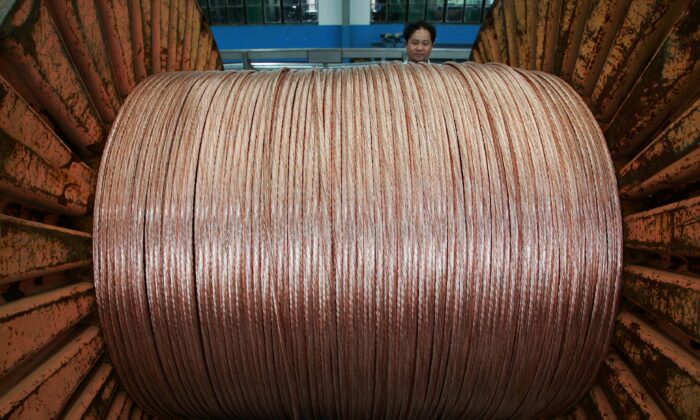Canada’s Lower Carbon Emissions Goals Depend on China for Copper Supply: Report
According to a new energy industry report, Canada’s efforts to reduce carbon emissions are heavily reliant on China.
The report highlights China’s dominance in copper smelting and refining, crucial for creating tools essential for cleaner energy and reduced carbon emissions.
It is estimated that copper demand will surge by 75 percent by 2050, requiring significant investment in processing and fabrication capacity.
The report warns that replacing China in this capacity would lead to inefficiencies, higher prices for finished goods, and delays in the energy transition.
Furthermore, the report emphasizes that nearly 80 percent of copper mining produces copper concentrate, which needs processing into cathode for producing various components of finished goods.
The report highlights China’s significant global capacity in smelting and refining, with 97 percent of the capacity added since 2000.
The anticipated growth in various sectors over the next decade will heavily rely on China’s capacity, necessitating substantial investments in smelting and refining outside of China.
Canada aims to reduce carbon emissions to 20 percent below 2005 levels by 2026 and achieve net-zero emissions by 2050.
To meet these goals, policies include promoting electric vehicles, phasing out gas-powered vehicles, and transitioning away from oil and gas use. Quebec municipalities are also restricting natural gas appliances, further increasing electricity demand.





